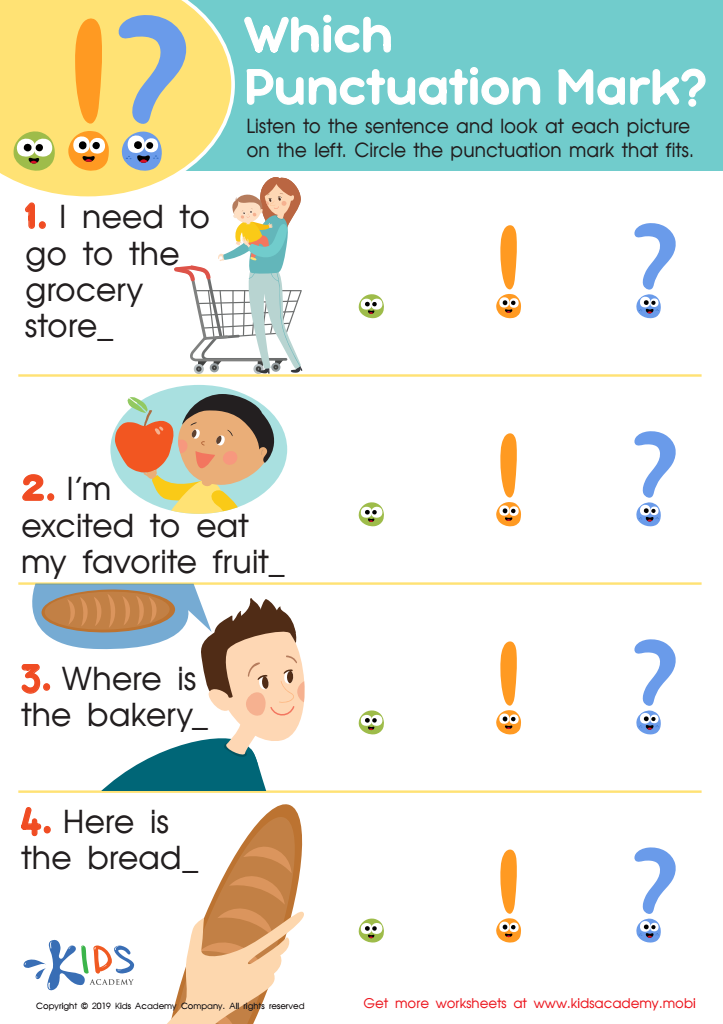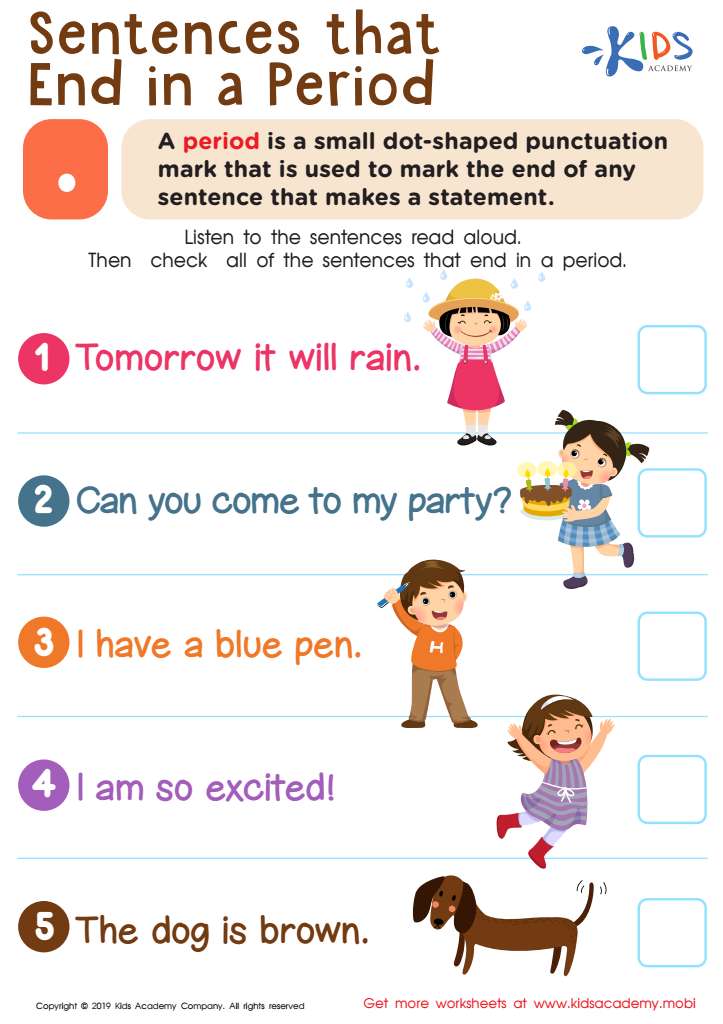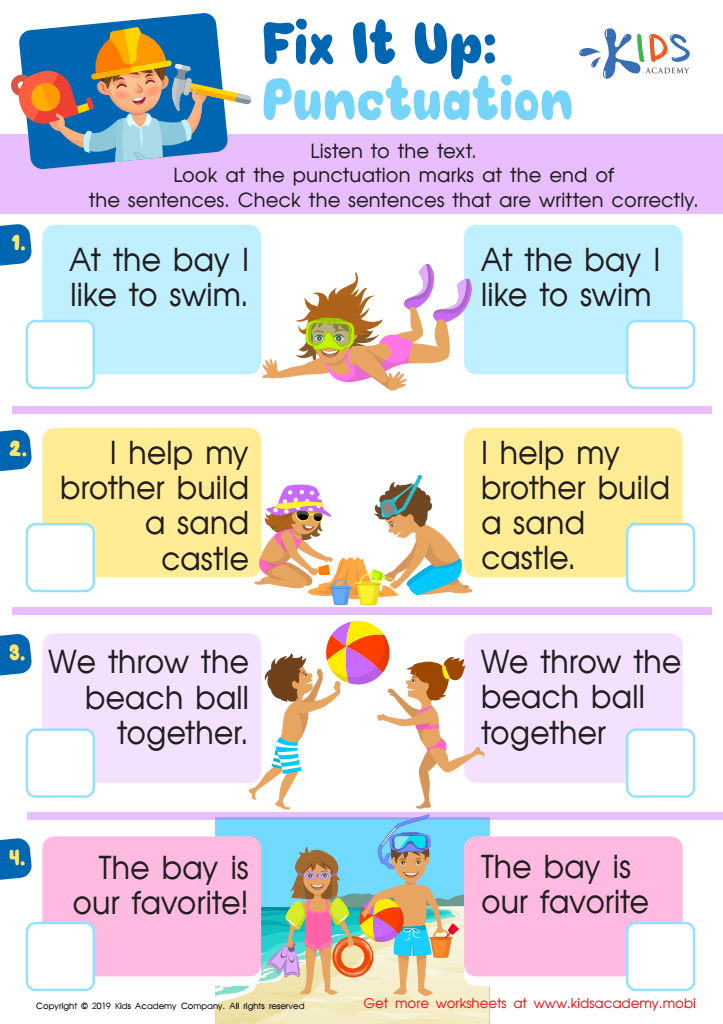Punctuation understanding Punctuation Worksheets for 6-Year-Olds
3 filtered results
-
From - To
Help your 6-year-old master punctuation with our engaging Punctuation Understanding Worksheets! Designed specifically for young learners, these interactive activities introduce essential punctuation marks, including periods, question marks, and exclamation points. Through fun exercises, children will practice identifying and using these marks in sentences, enhancing their writing and reading skills. Our worksheets promote clarity in communication and encourage creativity, enabling kids to express themselves effectively. With colorful illustrations and age-appropriate tasks, your child will develop a strong foundation in punctuation while having fun. Explore our printable resources today and watch your little one become a confident communicator in no time!


Which Punctuation Mark Worksheet


Sentences That End in a Period Worksheet


Fix Punctuation Worksheet
Understanding punctuation is essential for six-year-olds as it lays the groundwork for effective communication and literacy skills. At this age, children are beginning to read and write, making awareness of punctuation marks crucial. Punctuation helps to clarify meaning in sentences, guiding readers on how to interpret text. For example, a simple sentence like "Let's eat, Grandma" versus "Let's eat Grandma" illustrates how a comma can change the entire meaning.
By learning punctuation, children enhance their reading comprehension, enabling them to break down texts and grasp the intended message. Furthermore, understanding punctuation promotes better writing skills, allowing students to express their thoughts clearly and effectively. As they master different punctuation marks, such as periods, question marks, and exclamation points, children learn to convey emotions and ask questions, adding richness to their communication.
Moreover, early mastery of punctuation can boost confidence in literacy, encouraging a lifelong love for reading and writing. Teachers and parents play a vital role in this process by providing supportive environments, engaging activities, and positive reinforcement. Ultimately, an early focus on punctuation not just aids academic success, but also equips children with essential skills for effective social interaction and self-expression.
 Assign to My Students
Assign to My Students




















